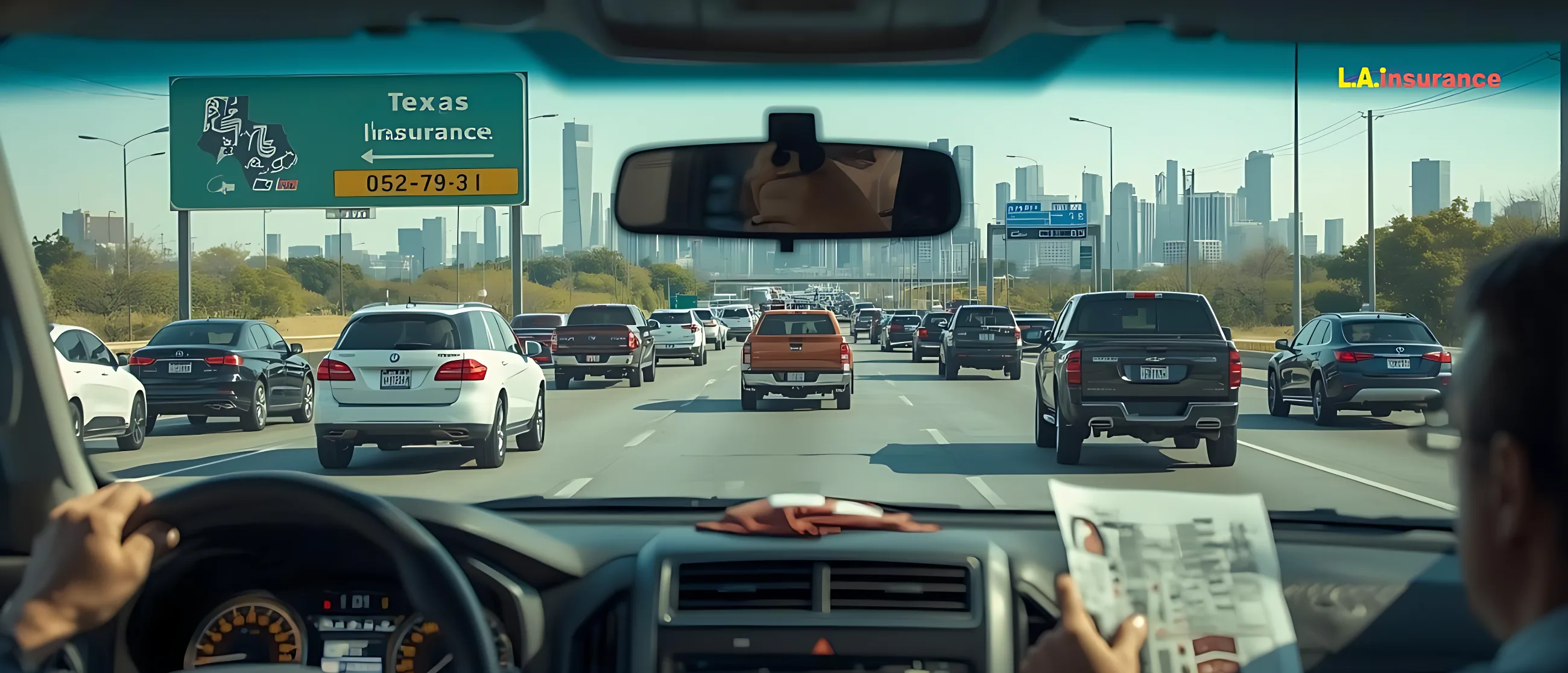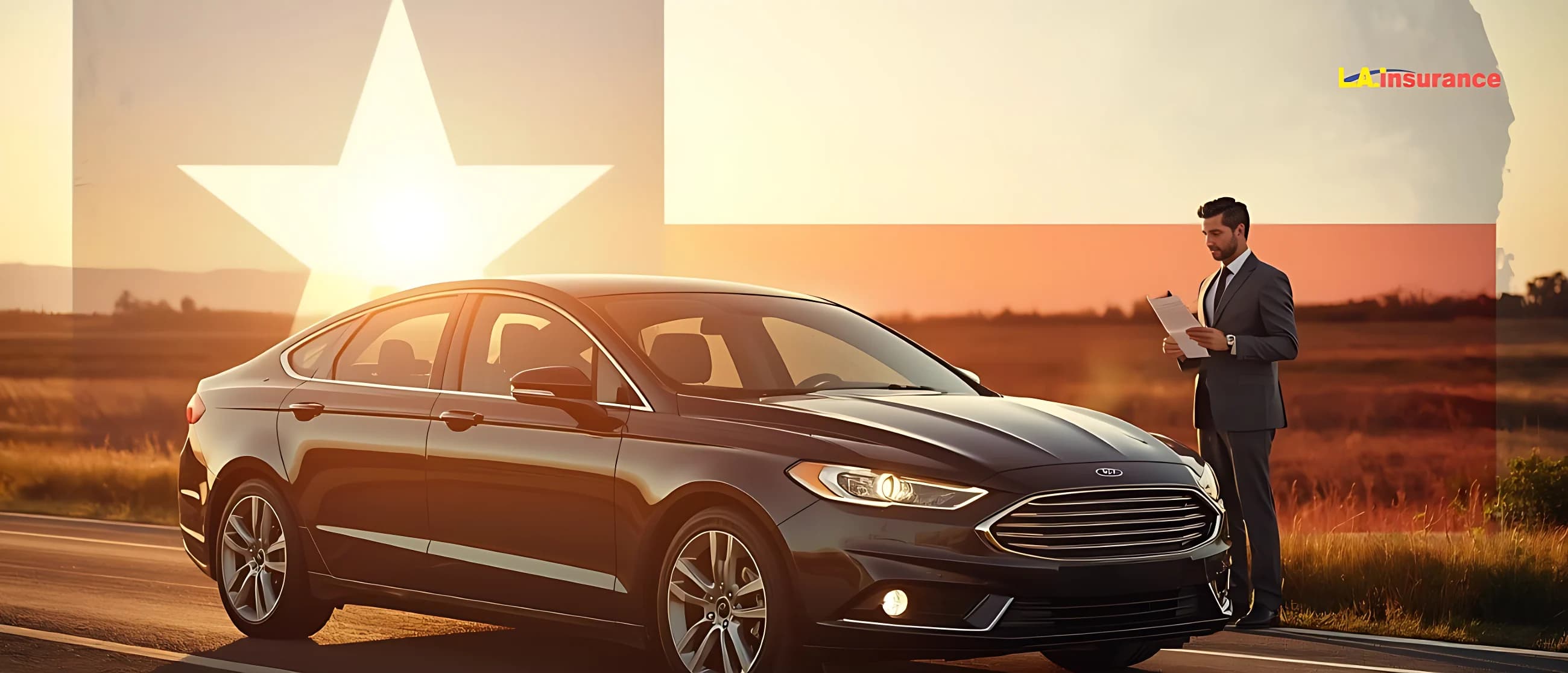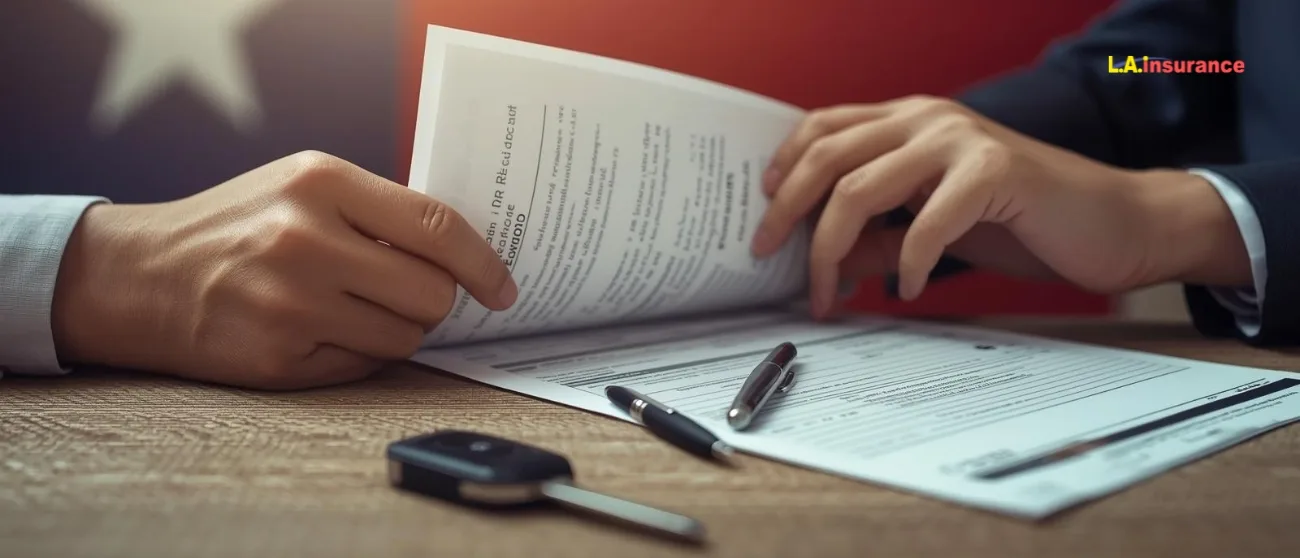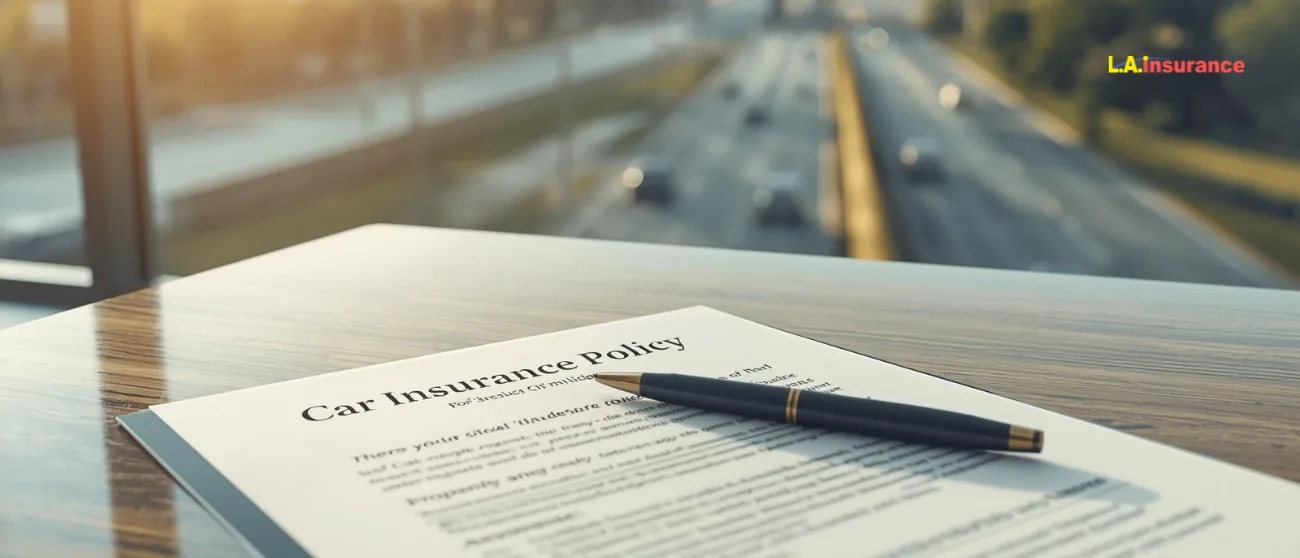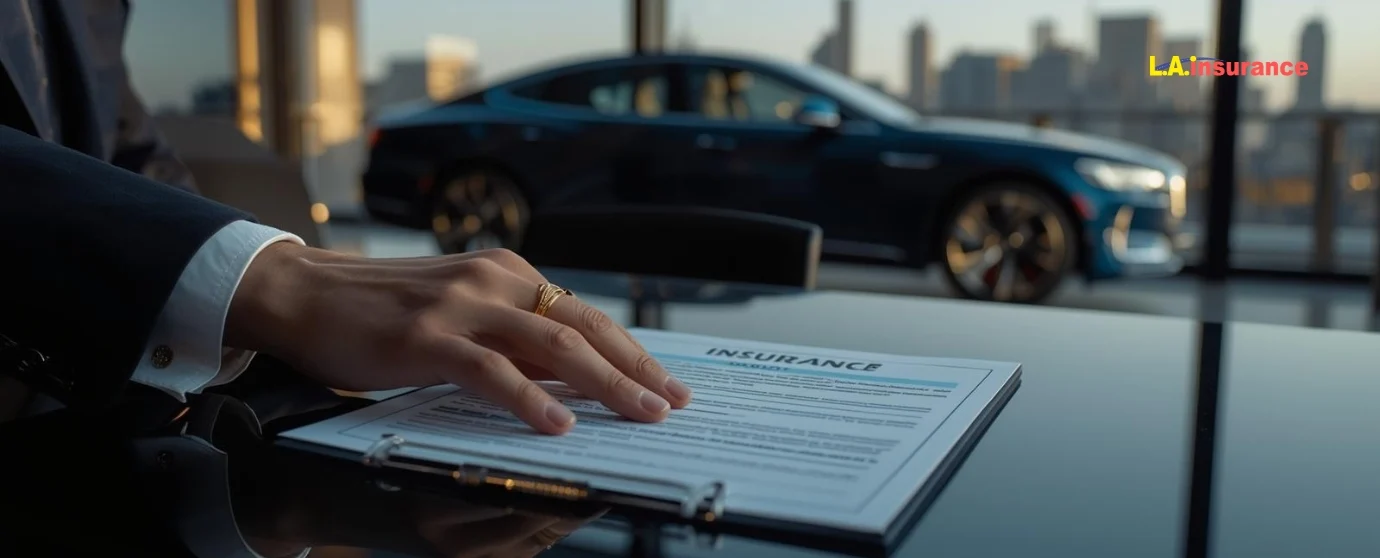
Publish Date: 15-11-2025
Auto Insurance
Last Updated: 16-12-2025
Does an Uninspected Car Raise Insurance?
If your car is safe to drive, you’re less likely to cause an accident, at least not because of a mechanical failure. A vehicle inspection helps ensure your car is road-ready. It can prevent accidents, reduce risk, and reassure your insurance company that your vehicle is in good condition.
But what happens if your car hasn’t been inspected or fails a safety check? Well, it depends. Each state has its own laws and procedures. Some even require a passed inspection before approving your auto insurance policy.
In this article, we’ll break down what an uninspected vehicle is, how inspections impact your car insurance, what state laws say about auto inspections, and other key questions. So, let’s dive in.
What Is an Uninspected Vehicle & What Leads to Failed Inspection?
A vehicle is considered uninspected when it doesn’t have a valid inspection certificate or sticker. If your state requires one and your inspection sticker has expired, your car still counts as “uninspected.” In simple terms, it means the vehicle hasn’t passed its required safety inspection or emissions test. Insurers may interpret this as a sign that the car isn’t safe or road-ready.
A failed inspection occurs when your car doesn’t meet state safety or emissions standards. For example, in modern vehicles (1996 and newer), a "pass" typically means the Check Engine Light is off and the car’s onboard computer confirms that its emissions control systems are functioning properly and have completed their self-tests.
Here are some of the most common issues that can lead to inspection failure:
- Worn-out or damaged brakes
- Faulty or dim headlights and taillights
- Cracked or obstructed windshield
- Poor tire tread or mismatched tires
- Faulty seat belts or missing safety equipment
- Excessive exhaust emissions or leaks
- Broken suspension or steering components
- Missing or damaged mirrors
If your car fails inspection, you’ll receive a report detailing all the issues. Most states give you a short period to fix the problems and schedule a reinspection. Ignoring it could lead to fines, registration delays, and even trouble getting your vehicle insured.
Can an Uninspected Car Raise Insurance?
No. An uninspected vehicle won’t raise your car insurance rates. At least not directly. But it can still cause other issues.
Insurance companies typically don’t adjust premiums just because your vehicle inspection has expired or hasn’t been completed. But that doesn’t mean you’re risk-free.
An uninspected car may signal a higher risk to your insurer. On the other hand, a completed inspection confirms your vehicle has no major faults and meets safety and roadworthiness standards.
Without it, your insurer may view the car as unsafe, especially if it’s later involved in an accident or causes injury. In such cases, some companies might even delay processing your claim until you provide a valid inspection certificate or report.
In states like New York, New Jersey, and Massachusetts, you may need a pre-insurance inspection (like a CARCO inspection) before your policy even starts. Also, driving an uninspected vehicle can lead to traffic tickets, registration issues, or license suspensions. If these violations show up on your driving record, your insurance rate could increase over time.
So, in short, while an expired or missing inspection may not raise your rate directly, it can still affect your insurance costs in the future, specifically if you’re not following state laws.
Learn more about factors that affect your car insurance directly:
How Does a Failed Auto Inspection Affect Car Insurance?
A failed auto inspection usually doesn’t raise your insurance rates right away. But as we mentioned, it can cause indirect issues. If your car fails a safety or emission test, it means it’s not ready for the road. If your insurer knows that your vehicle has failed inspection, particularly in a state where it is a legal requirement, you might face the following issues:
- Claim denial or delayed processing
- Insurer may refuse to insure/renew your vehicle
- You may face license suspensions, tickets, or other violations, which may raise your future premiums.
- Your current policy may be suspended or become invalid until you fix those issues
- Registration complications
If you’re paying too much for auto insurance premiums, don’t lose hope! there’re ways to lower car insurance rates. Need reliable and affordable full coverage auto insurance? Reach out to L.A. Insurance, one of the largest auto insurance agency franchises in North America.
We’ve proudly served over 10 million customers (and counting), helping drivers stay protected and confident on the road. Let’s make sure you and your vehicle are road-ready. Request a quote today or give us a call at (800) 893-9393.
Do All U.S. States Require Car Inspection?
The majority of U.S. states no longer require vehicle safety or emissions inspections. Over the past few decades, these checks have become increasingly rare for passenger vehicles.
For example, Texas eliminated its safety inspection requirement for all non-commercial vehicles in January 2025, according to the Texas Department of Public Safety.
As of 2025, only 14 states still mandate periodic inspections, covering both safety and emissions, for passenger vehicles. These laws can also vary by state, county, and metropolitan area.
In many cases, emissions testing is a local requirement rather than a statewide one. It's typically enforced in metro areas or counties that have failed to meet federal air quality standards under the Clean Air Act. Furthermore, newer vehicles are often exempt from inspections for the first 4 to 8 model years.
Some states are using advanced technology to reduce the hassle for drivers. For instance, Colorado uses remote sensing devices on roadways to screen vehicles for emissions compliance. So, drivers do not have to go to a CARCO/designated inspection station.
As of October 2025, here are the 14 states that require periodic safety inspection for passenger vehicles:
State | Inspection Frequency/Timing | Key Details |
Delaware | Biennially | Includes both safety and emissions inspection. |
Hawaii | Annually | Required for all registered vehicles. |
Louisiana | Annually or Biennially | Inspection is annual in some parishes, and a two-year sticker may be available in others. Emissions test required only in Baton Rouge metro area. |
Maine | Annually | Includes both safety inspection and emissions check (the latter only for Cumberland County). |
Massachusetts | Annually | Includes both safety and emissions testing. |
Missouri | Biennially | Required statewide. Emissions inspection is also required in the St. Louis metro area. |
New Hampshire | Annually | Includes both safety and emissions testing for models less than 20 years old. |
New York | Annually | Includes both safety and emissions inspection. |
North Carolina | Annually | Required statewide. Emissions inspection is also required in certain counties. |
Pennsylvania | Annually | Emissions inspection is also required in 25 of 67 counties. |
Rhode Island | Biennially | Includes both safety and emissions inspection. |
Vermont | Annually | Includes safety and emissions testing. |
Virginia | Annually | Emissions testing is also required biennially in Northern Virginia and other specific urban/suburban counties. |
West Virginia | Biennially | Periodic safety inspection is required. |
It’s also worth noting that 5 states require a pre-insurance inspection. This is typically necessary for policyholders who are adding or changing comprehensive or collision coverage. The purpose of the inspection is to prevent insurance fraud by verifying the vehicle’s ownership and condition. If you’re driving in one of these states, your insurer may require you to submit a photo or inspection report of your vehicle before the policy becomes active.
- New York
- New Jersey
- Massachusetts
- Rhode Island
- Florida (in certain areas)
U.S. States That Require Vehicle Emission Inspection
Here are the states that usually require your vehicle to get inspected for emissions:
- Arizona (Biennial testing in Phoenix and Tucson metro areas)
- California (“Smog Check” program; biennial testing in 41 counties with exemptions)
- Colorado (Biennial testing in Front Range Urban Corridor)
- Connecticut (Biennial emissions testing statewide)
- Delaware (Combined safety and emissions testing; biennially)
- District of Columbia (Biennial emissions testing)
- Georgia (Annual testing in 13-county Atlanta metro region)
- Illinois (Biennial testing in Chicago and Metro East areas)
- Indiana (Biennial testing in Lake and Porter counties)
- Louisiana (Annual testing in Baton Rouge metro area)
- Maine (Annual testing in Cumberland County only)
- Maryland (Biennial testing in Baltimore and D.C. metro counties)
- Massachusetts (Annual combined safety and emissions testing)
- Missouri (Biennial testing in St. Louis metro region)
- Nevada (Annual testing in Clark and Washoe counties)
- New Hampshire (Annual safety inspection includes emissions for most vehicles <20 years old)
- New Jersey (Biennial testing; new cars exempt for 5 years)
- New Mexico (Biennial testing in Bernalillo County)
- New York (Annual safety inspection includes emissions testing)
- North Carolina (Annual testing in 19 specific counties)
- Ohio (Biennial testing in Cleveland metro area)
- Oregon (Periodic testing in Portland and Medford metro areas)
- Pennsylvania (Annual testing in 25 specific counties)
- Rhode Island (Biennial combined safety and emissions testing)
- Texas (Annual testing in 17 major urban counties)
- Utah (Periodic testing in Cache, Davis, Salt Lake, Utah, and Weber counties)
- Vermont (Annual safety inspection includes emissions testing)
- Virginia (Biennial testing in Northern Virginia and Richmond)
- Wisconsin (Biennial testing in select counties like Milwaukee, Kenosha, Waukesha)
States That Don’t Require Safety or Emission Inspection
The following states require neither safety nor emission inspection for most non-commercial passenger vehicles:
- Alabama
- Alaska
- Arkansas
- Florida
- Iowa
- Kansas
- Kentucky
- Michigan
- Minnesota
- Mississippi
- Montana
- Nebraska
- North Dakota
- Oklahoma
- South Carolina
- South Dakota
- Tennessee (requires an emission test only during vehicle registration)
- Washington (Emissions testing ended Jan 1, 2020)
- Wyoming
Will Insurance Rates Increase in Michigan for Uninspected Vehicles?
No. Michigan drivers do not need to go through a vehicle safety inspection or emission test either for registration or auto insurance. So, whether your vehicle is inspected or uninspected, it won’t affect your insurance rate. Besides, there’s no risk of facing a penalty from your insurance company for driving an uninspected car.
Instead of focusing on “car inspection,” Michigan's no-fault insurance laws look closely at your driving record, past accidents, age, claim history, and other key factors. These factors help determine the insurer to set your auto insurance rates in Michigan.
However, if your vehicle is uninspected or isn’t safe for the road, there’s a higher risk of an accident. So, your insurance company might see you as a higher risk. So, always make sure to drive a safe vehicle.
3 Simple Steps to Schedule Your Car for Inspection
If your state or jurisdiction requires you to inspect your vehicle for safety and emissions, you can do it with the designated inspection station or a third-party company like CARCO. Here are the 3 simple steps to schedule and successfully get your vehicle inspected:
- Step 1: Book an appointment early. Find a certified vehicle inspection station near you. Many state DMV websites list approved centers. Call or book online to pick a convenient time. Avoid last-minute rushes, especially before registration.
- Step 2: Prepare your car for inspection. Check basic safety features first, including brakes, lights, tires, mirrors, windshield, and seat belts. Fix any small issues before visiting. Bring your registration, driver’s license, and insurance policy for verification.
- Step 3: Complete and pass the inspection. Arrive on time and stay in your vehicle during the process. If it passes, you’ll receive an inspection certificate or sticker. If it fails, review the vehicle inspection report and schedule a reinspection.
Risks of Driving an Uninspected Vehicle
Operating a vehicle that hasn’t undergone or passed inspection poses significant risks to both driver safety and the environment. If you drive that kind of vehicle, you risk traffic tickets, registration suspension, or even losing your license.
Some insurance companies may delay or deny claims if your car isn’t inspected or safe. Worse, an unsafe car increases the chance of an accident or injury. A missing inspection certificate can also raise red flags during policy renewals, particularly if you live in areas where it is required by law.
Frequently Asked Questions (FAQs)
What happens to my insurance if my inspection sticker has expired?
Your insurance usually stays active. However, some states might fine you or block registration. If it’s legally required in your jurisdiction, try to renew the inspection certificate as soon as possible to avoid any legal or policy issues.
How long does a vehicle inspection take?
According to multiple sources, a vehicle inspection takes between 15 minutes to 1 hour. The exact time depends on the station and the car’s condition.
How much does a car inspection cost?
Based on our research state state-mandated auto inspection may cost around $10 to $100.
What do car inspections check for?
Inspectors review key safety parts, including brakes, tires, lights, windshields, and seat belts. In case of emission test, it is checked for exhaust gases (CO, HC, NOx), the catalytic converter, fuel cap, EVAP system, and onboard diagnostics to ensure your car meets environmental standards.
What is CARCO inspection, and how to do it?
A CARCO inspection is a pre-insurance check required in some states. Visit an approved inspection site, take photos, and submit them to your insurance company.
Can I claim for auto insurance if my car is uninspected?
Yes, you can do that. Most insurers won’t deny your claim for keeping your vehicle uninspected, unless they find it had major mechanical issues that caused the accident.
Is there a fine for driving an uninspected vehicle?
Yes. Many states/jurisdictions that legally require drivers to keep their vehicles inspected for safety or emissions may issue traffic tickets or suspend your registration for driving without a valid inspection.
Editorial Disclaimer
The information provided on this blog is for general informational purposes only and does not constitute professional insurance, legal, or financial advice. Coverage and rates are subject to individual eligibility, underwriting guidelines, and state availability. For specific questions regarding your policy or to get an accurate quote, please contact a licensed L.A. Insurance agent directly. We're an independent agency and not a direct insurance carrier. For more information on how we operate and handle your data, please see our Terms and Conditions and Privacy Policy.
Tag :
cheap car insurance
fast car insurance
Auto insurance
